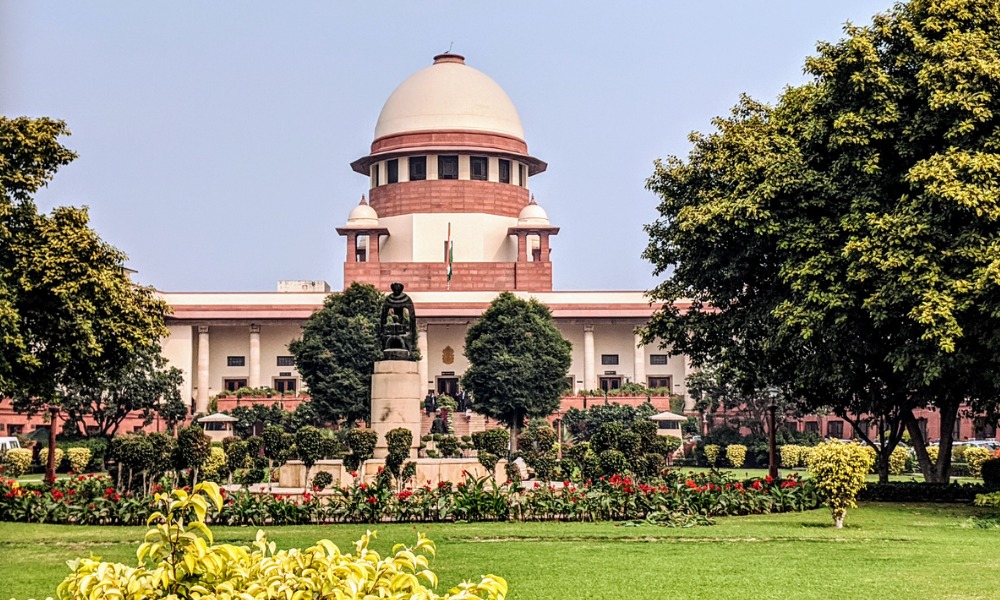
This backlog resulted in accused individuals spending extended periods in prison awaiting trial

A significant backlog of approximately 80,000 cases at India’s Supreme Court is hampering access to justice and weakening the country’s judiciary, the International Bar Association (IBA) reported.
Nusrat Hassan, co-chair of the IBA Asia Pacific Regional Forum’s India Working Group and managing partner at Dentons Link Legal in Mumbai, highlighted the issue, stating, “There is a problem. Delays are the elephant in the room. Everybody is aware this is becoming a serious issue in the delivery of justice.”
The Supreme Court, comprising 34 judges, reviews appeal cases ranging from employer-employee disputes to land disagreements escalated from district or high courts across India. These judges also handle new hearings related to the government. Research from the Centre for Social and Economic Progress in New Delhi indicates that the court's caseload has increased over the years, paralleling population growth, higher literacy rates, and economic development. However, the number of judges has not grown correspondingly.
In a statement, Hassan said, “The [case] numbers are so large it almost seems impossible that we would be able to reach a point when we would be up to date.” This backlog resulted in accused individuals spending extended periods in prison awaiting trial.
William H. J. Hubbard, deputy dean at the University of Chicago Law School and research professor at the American Bar Foundation, noted that the judiciary's inefficiency prevents it from effectively holding the government accountable. Routine cases consume time that could be allocated to matters with broader societal implications. Citing an example, Hubbard mentioned the Supreme Court’s delayed ruling on the Aadhaar national identification card scheme, which allowed its implementation despite pending privacy concerns.
Delays are particularly frequent when cases involve decisions that may oppose the government, according to Tarun Khaitan, a professor of public law at the London School of Economics. The Supreme Court did not respond to Global Insight’s request for comment.
Research published in the Journal of Law and Economics by Madhav S. Aney, Shubhankar Dam, and Giovanni Ko highlighted a trend where judges nearing retirement, set at age 65 for the Indian Supreme Court, are more likely to rule in favour of the government. Sital Kalantry, founder of the RoundGlass India Center at Seattle University, suggested this is because the government is a major employer of former Supreme Court judges. Kalantry emphasized that institutional structures and rules make the court “beholden to the party in power.”
Nusrat Hassan believes innovative thinking and increased investment in the judiciary's infrastructure could enhance the country's overall status. “The government needs to understand that some of the largest problems in our country would be solved if the judiciary was efficient,” Hassan said. Efficient case resolution could reduce disputes, promote commerce, and alleviate suffering.
Hubbard, Kalantry, and their co-author Aparna Chandra proposed raising the retirement age of Supreme Court judges and adopting a more selective approach to case admissions. This could free up time for scrutinizing cases involving the constitutionality of legislation or executive actions. Although Hubbard is not optimistic about immediate court case management reforms, he sees potential paths forward.
Ramesh Vaidyanathan, a former IBA Asia Pacific Regional Forum co-chair, suggested that continuous legal education could enhance the lower judiciary, reducing the number of appeals reaching the Supreme Court. Khaitan also advocated for skills, personnel, and infrastructure investments to improve the underfunded and understaffed lower judiciary.
Chief Justice Dr. Justice Dhananjaya Yeshwant Chandrachud has been exploring the digitization of courts to increase their capacity. However, Sandeep Bhupatiraju, a researcher specializing in data related to justice and law, questioned whether digital solutions alone could ensure justice, though he acknowledged the added convenience they provide.